The Contested Meaning of Women's Rights: Reclaiming a Lost Vision of Freedom
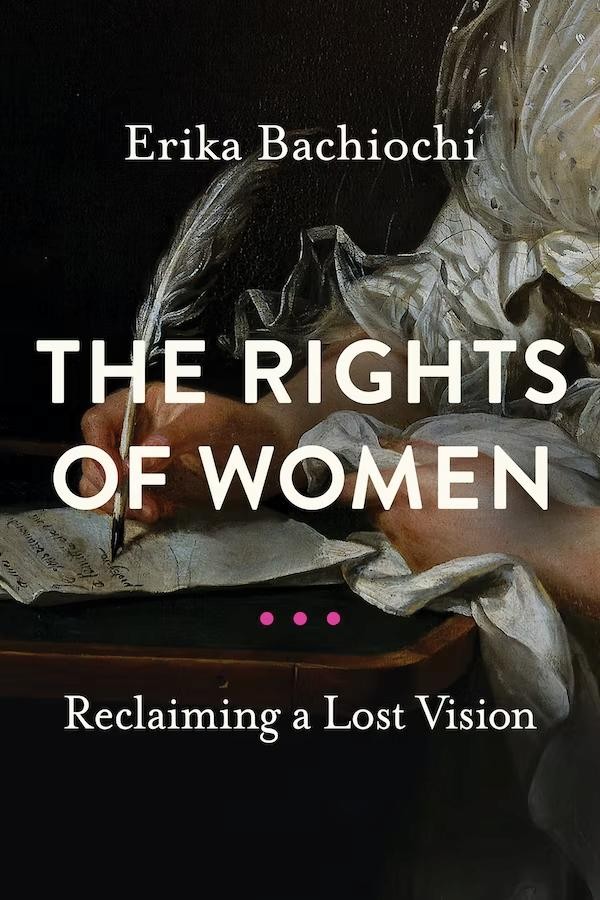
Erika Bachiochi
Ethics and Public Policy Center
Abigail Adams Institute
Mary Ann Glendon
Former U.S. Ambassador to the Holy See
Learned Hand Professor of Law, emerita, Harvard University
Moderator: Emma McDonald, Boston College
Date: Tuesday, March 21, 2023
Time: 6 - 7:15pm
Location: Devlin Hall 101
Erika Bachiochi, Fellow, Ethics & Public Policy Center, and Senior Fellow, Abigail Adams Institute, will discuss her recently published book, The Rights of Women, Reclaiming a Lost Vision. Response by former U.S. Ambassador to the Holy See and Learned Hand Professor of Law, emerita, at Harvard University Mary Ann Glendon. Moderated by Emma McDonald, doctoral candidate in theological ethics, Boston College.
Speakers Bios
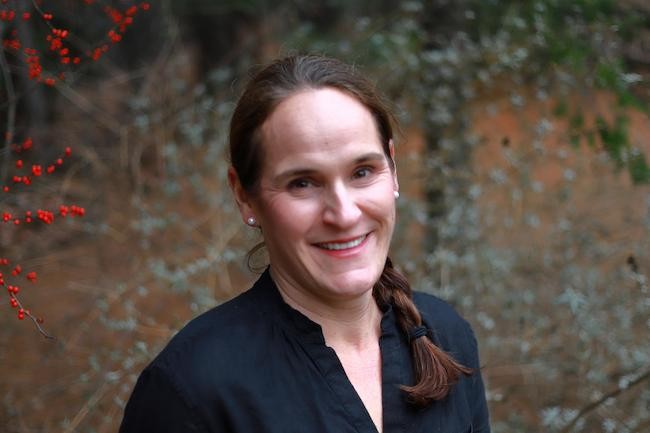
Erika Bachiochi is a fellow at the Ethics and Public Policy Center and a senior fellow at the Abigail Adams Institute, where she founded and directs the Wollstonecraft Project. A 2018 visiting scholar at Harvard Law School, Erika received her Juris Doctor from Boston University School of Law, and her Masters in Theology from Boston College, where she was a Fellow at the Institute for the Study of Religion and Politics. She is the author of The Rights of Women: Reclaiming a Lost Vision as well as the editor of Women, Sex, and the Church: A Case for Catholic Teaching and The Cost of “Choice”: Women Evaluate the Impact of Abortion.
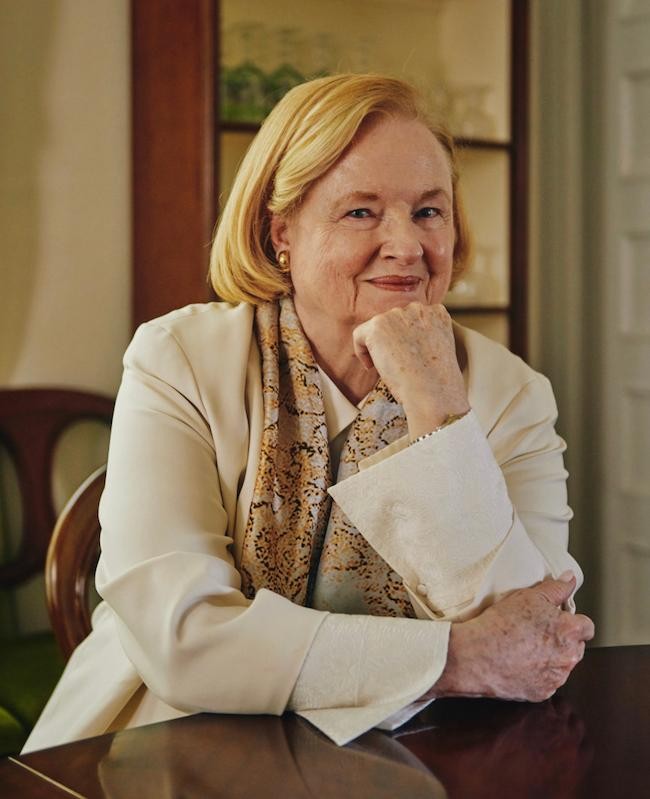
Mary Ann Glendon is the Learned Hand Professor of Law Emerita at Harvard University. A former U.S. Ambassador to the Holy See, her government service also includes chairing the U.S. State Department Commission on Unalienable Rights and serving on the U.S. Commission on International Religious Freedom. Her books include A World Made New: Eleanor Roosevelt and the Universal Declaration of Human Rights, a history of the framing of the UDHR; Rights Talk, a critique of the impoverishment of political discourse; The Forum and the Tower, a series of biographical essays exploring the relation between political philosophy and politics-in-action;. and the forthcoming In the Courts of Three Popes.
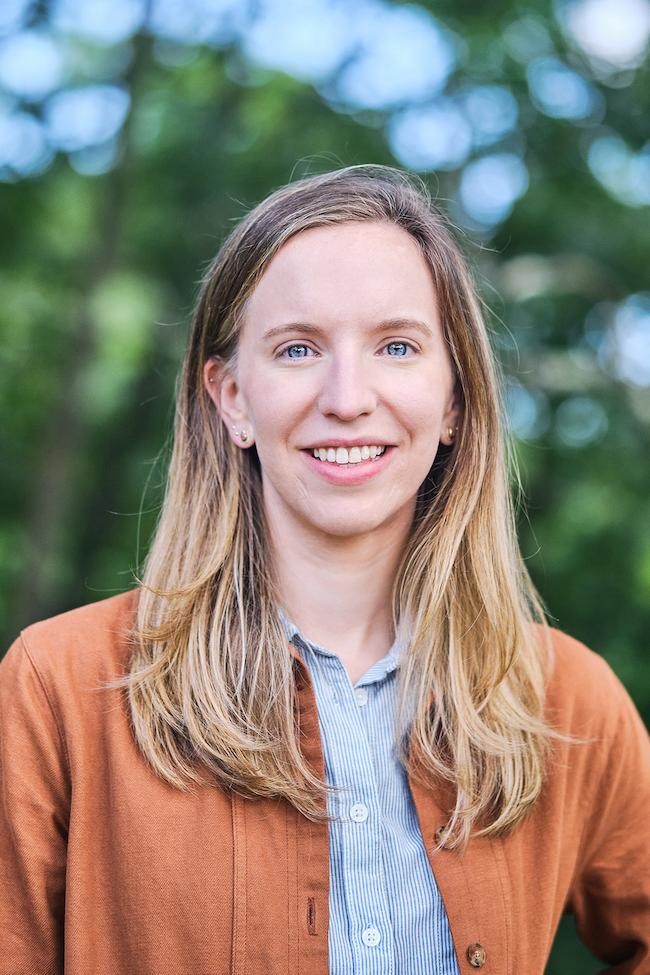
Emma McDonald is a fourth year doctoral candidate in Theological Ethics at Boston College. Her dissertation draws on qualitative research with Catholic women who have experienced infertility and physicians who treat it to sketch an account of situated moral agency and argue for an updated ecclesial approach that supports the formation of a proactive, self-reflective agency. Prior to matriculating at BC, Emma received her Master of Arts in Religion from Yale Divinity School in 2019 and her Bachelor of Arts in Religion from Middlebury College in 2016.
Read More
Bachiochi, Erika. The Cost of Choice: Women Evaluate the Impact of Abortion. San Francisco: Encounter Books, 2004.
__________. “Embodied Caregiving.” First Things 266 (2016). https://www.firstthings.com/article/2016/10/embodied-caregiving.
__________. The Rights of Women: Reclaiming a Lost Vision. Notre Dame, Indiana: University of Notre Dame Press, 2021.
__________, ed. Women, Sex and the Church: A Case for Catholic Teaching. Boston: Pauline Books & Media, 2010.
Glendon, Mary Ann. The Forum and the Tower: How Scholars and Politicians Have Imagined the World, from Plato to Eleanor Roosevelt. Oxford: Oxford University Press, 2011.
__________. A World Made New: Eleanor Roosevelt and the Universal Declaration of Human Rights. New York: Random House, 2002.
Glendon, Mary Ann, Paolo Carozza, and Colin Picker. Comparative Legal Traditions: Texts, materials, and Cases on Western Law, 4th ed. St. Paul, MN: West Academic Publishing, 2014.
In the News
In her New York Times’ article, “Special Edition: Roe v. Wade is Overturned,” journalist Remy Tumin summarizes the debates surrounding the recent Supreme Court case, Dobbs v. Jackson Women’s Health Organization. This decision has sparked further discourse about womens’ rights and led to conversations that now dominate classrooms, companies, families, religious organizations, and political institutions.
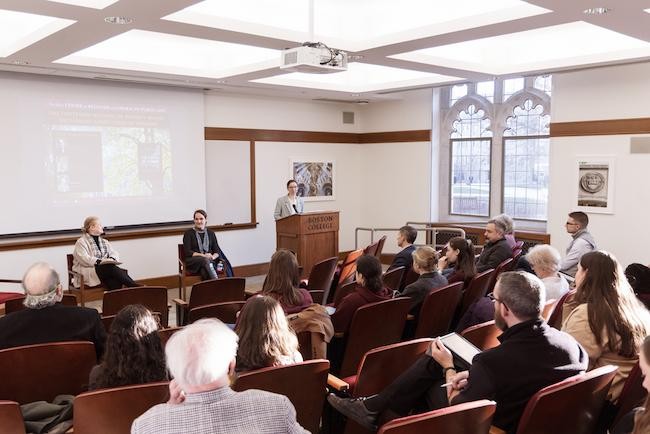
Emma McDonald (right) introducing our esteemed panelists, Erika Bachiochi (middle) and Mary Ann Glendon (left).
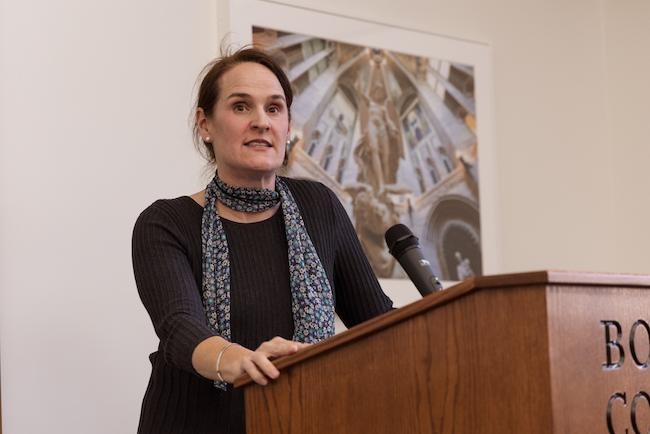
Erika Bachiochi begins the panel by discussing her latest book.
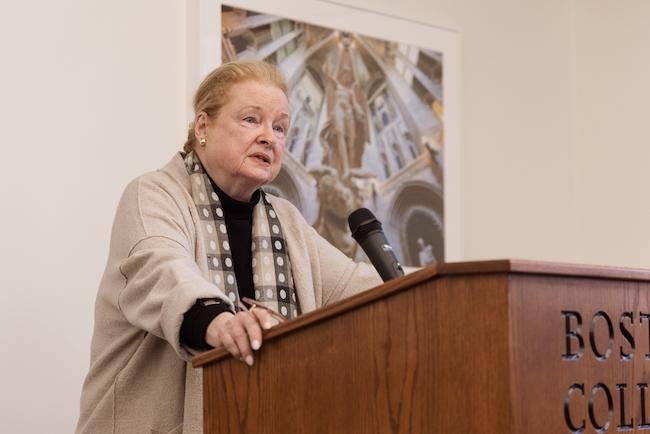
Mary Ann Glendon offers her insight during the panel discussion.
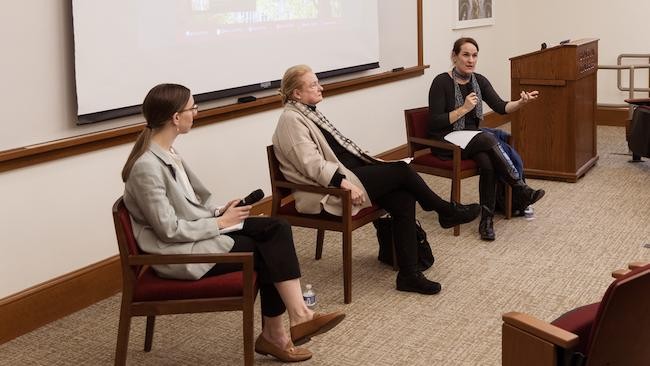
Emma McDonald (left) with panelists Mary Ann Glendon (center) and Erika Bachiochi (right).
Photo Credits: Christopher Soldt, MTS
On Tuesday, March 21st, Emma McDonald, a doctoral candidate in theological ethics at Boston College, moderated a panel discussion between Erika Bachiochi, a senior fellow at the Abigail Adams Institute and Mary Ann Glendon, former U.S. Ambassador to the Holy See and Learned Hand Professor of Law, emerita, at Harvard University. Bachiochi, Glendon, and McDonald discussed Bachiochi’s recent book titled, The Rights of Women: Reclaiming a Lost Vision in relation to the Supreme Court's ruling in Dobbs v. Jackson Women's Health Organization.
The conversation began by examining the Court’s dissent in the Dobbs case and evaluating how American society defines “autonomous beings.” Bachiochi explained how the modern understanding of an autonomous being incorporates a women’s right to an elective abortion; however, she described how this was not always the case. Historically speaking, feminists viewed women’s rights through the lens of an interdependent relationship between children and parents. In other words, equal rights were not based on autonomy from others but rather through the view that humans are inherently connected.
Glendon added to the conversation, suggesting that the modern perception of women’s rights has not prevented the “Four Deadly Ds,” which she defines as the increasing rate of divorce, disadvantage faced by women in the workplace when trying to balance the role of motherhood and their job, disrespect for women who choose not to enter the workforce, and destitution that hurts many women-led families (as the highest rates of poverty are among single mothers with children).
Hence, Bachiochi and Glendon encouraged the audience to focus on how dependent human beings are on one another. Rather than measuring our degrees of liberty based on our ability to leave others, we should refocus on how we have the right to rely upon and responsibility to support others.

